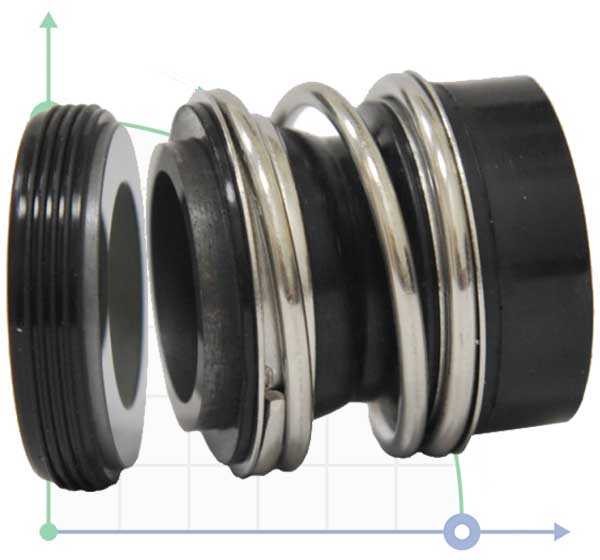Mechanical seals are critical components in many industrial applications, including pumps, compressors, and mixers. They are designed to prevent fluid leakage and maintain the integrity of the system. However, mechanical seal leakage is a common problem that can lead to equipment failure, downtime, and costly repairs. In this article, we will explore the root causes of mechanical seal leakage and provide practical solutions to prevent it.
- Seal Face Damage
One of the most common causes of mechanical seal leakage is seal face damage. Seal faces can become damaged due to improper installation, misalignment, or excessive heat. When the seal faces are damaged, they cannot form a proper seal, and fluid can leak out. To prevent seal face damage, it is essential to follow proper installation procedures, ensure proper alignment, and monitor the temperature of the system.
- Seal Face Wear
Another common cause of mechanical seal leakage is seal face wear. Seal faces can wear over time due to friction, abrasion, and erosion. When the seal faces wear, they cannot form a proper seal, and fluid can leak out. To prevent seal face wear, it is essential to select the right materials for the seal faces, monitor the condition of the seal faces regularly, and replace them when necessary.
- Improper Lubrication
Mechanical seals require proper lubrication to function correctly. If the seal faces are not adequately lubricated, they can become damaged or worn, leading to leakage. To prevent improper lubrication, it is essential to use the correct lubricant for the application, monitor the lubrication system regularly, and ensure that the lubricant is flowing correctly.
- Excessive Pressure or Temperature
Excessive pressure or temperature can cause mechanical seal leakage. When the pressure or temperature exceeds the design limits of the seal, it can cause the seal faces to fail, leading to leakage. To prevent excessive pressure or temperature, it is essential to operate the system within the design limits of the seal, monitor the pressure and temperature regularly, and take corrective action if necessary.
- Chemical Attack
Chemical attack can cause mechanical seal leakage. When the seal faces are exposed to chemicals that are not compatible with the seal materials, they can become damaged or corroded, leading to leakage. To prevent chemical attack, it is essential to select the right materials for the seal faces, monitor the chemical compatibility of the system, and take corrective action if necessary.
In conclusion, mechanical seal leakage can be a costly and time-consuming problem. By understanding the root causes of mechanical seal leakage and implementing practical solutions to prevent it, you can ensure the integrity of your system and avoid costly downtime and repairs. Remember to follow proper installation procedures, select the right materials for the seal faces, monitor the condition of the seal faces regularly, and operate the system within the design limits of the seal.


